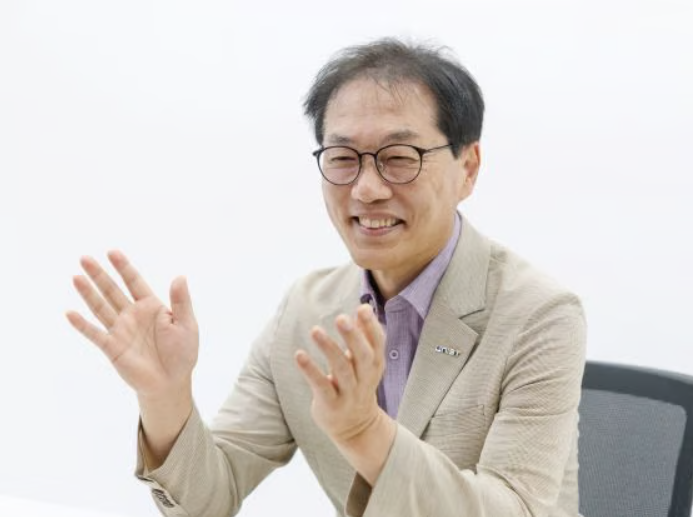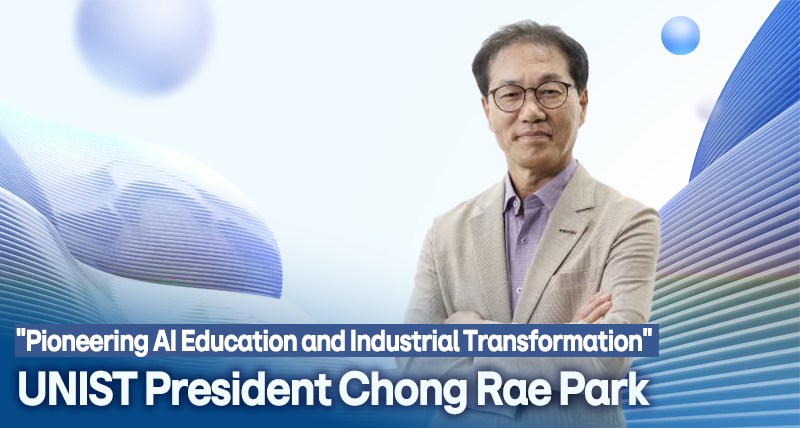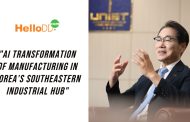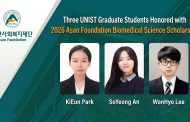AI is not just a tool—it’s the key to transforming traditional industries into engines of sustainable growth!
UNIST is strengthening its role as a hub for industrial innovation by expanding hands-on artificial intelligence (AI) education programs tailored to the needs of regional industries.
At the center of this effort is the AI Novatus Academia, a project-based learning (PBL) program launched in 2021 for engineers and professionals in manufacturing sectors. The program connects participants with UNIST professors and graduate student mentors to solve real-world challenges encountered during AI adoption. To date, more than 500 professionals from 250 companies have taken part.

President Chong Rae Park emphasized the importance of hands-on AI education models in his interview with Money Today.
“Traditional manufacturers in Ulsan—energy, materials, and automotive industries in particular—cannot secure future competitiveness without AI-driven innovation,” said President Chong Rae Park of UNIST during his interview with Money Today. “By putting AI directly into the hands of industry professionals, we turn knowledge into immediate solutions.” He further added, “[And] through this, we can accelerate digital and AI transformation (DX and AX), while empowering companies to tackle pressing challenges with both technical tools and domain expertise.
This initiative also reflects the Korean government’s national strategy, which identifies AI as a cornerstone of its ‘Super-Innovation Economy‘ and tasks the four major institutes of science and technology (KAIST, UNIST, GIST, and DGIST) with cultivating next-generation AI talent. UNIST’s program, in particular, supports Ulsan’s regional digital transformation strategy for more than 8,000 small and medium-sized enterprises (SMEs).
Beyond education, UNIST is advancing a demand-driven technology transfer model. Over the past three years, 46% of the university’s 160 technology transfers were made directly to Ulsan-based companies, and more than 60% went to the broader southeast region. This ensures that research outcomes are translated into high-value applications and startups, building a strong industry–academia–research ecosystem.
President Park also emphasized Korea’s opportunity in Vertical AI—the application of AI tailored to specialized industrial fields—rather than competing head-on in the global race for large, general-purpose foundation models. “The real strength of Korea lies in embedding AI into traditional industries, where high-quality data and precise processes give us a competitive edge,” he said.
Looking ahead, UNIST will announce its ‘UNIST 2050 Vision’ in September 2025. This long-term strategy, developed through both backcasting and forecasting approaches, will redefine the university’s mission in education, research, and industry collaboration while presenting new organizational frameworks and milestones for the decades to come.
《Editor’s Note: This article is based on an interview with President Chong Rae Park of UNIST, originally published in Money Today on August 25, 2025, under the title “Expanding On-Site AI Education: Lighting the Sustainable Future of Regional Industries.”》











![[2026 UNIST Matriculation] “Design Questions the World Has Never Seen!”](https://news.unist.ac.kr/wp-content/uploads/2026/02/사진-박종래-UNIST-총장이-2026년-입학식사를-전하고-있다-1-1-190x122.jpg)
![[2026 UNIST Commencement] “Become Way Makers Who Open Paths Where None Are Drawn!”](https://news.unist.ac.kr/wp-content/uploads/2026/02/사진-박종래-총장이-UNIST-학위수여식사를-전하고-있다-3-1-190x122.jpg)


